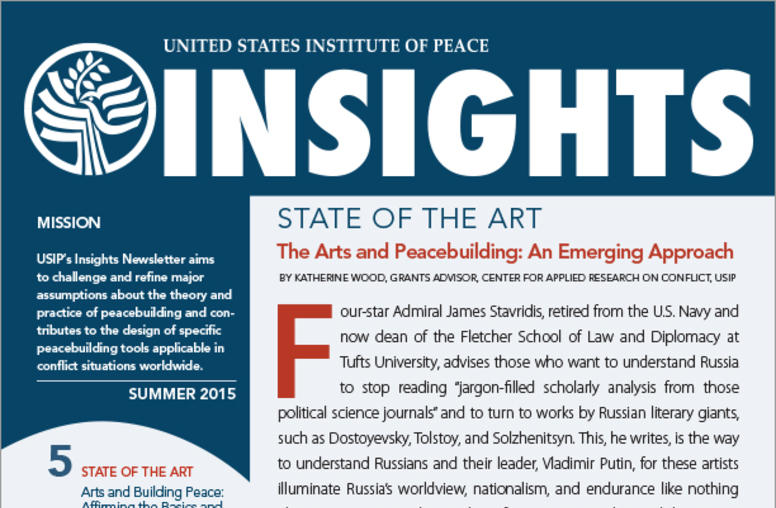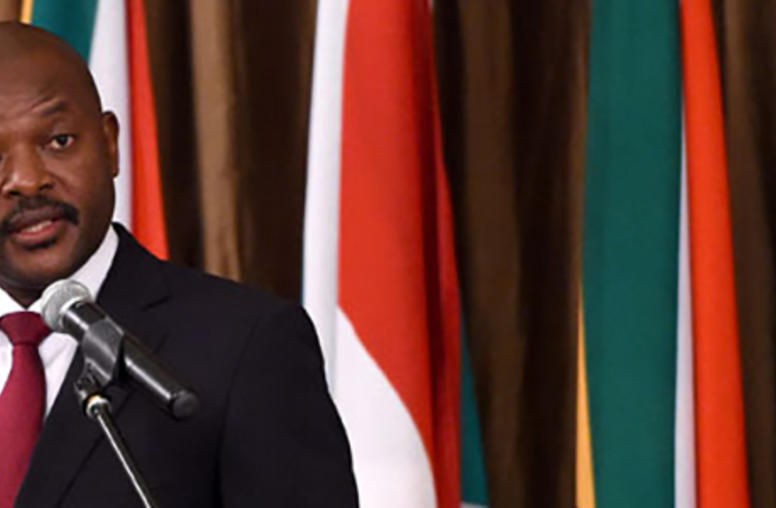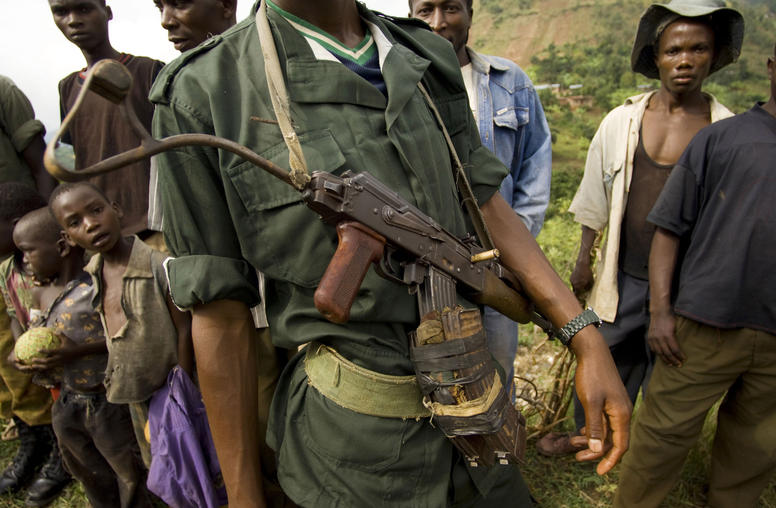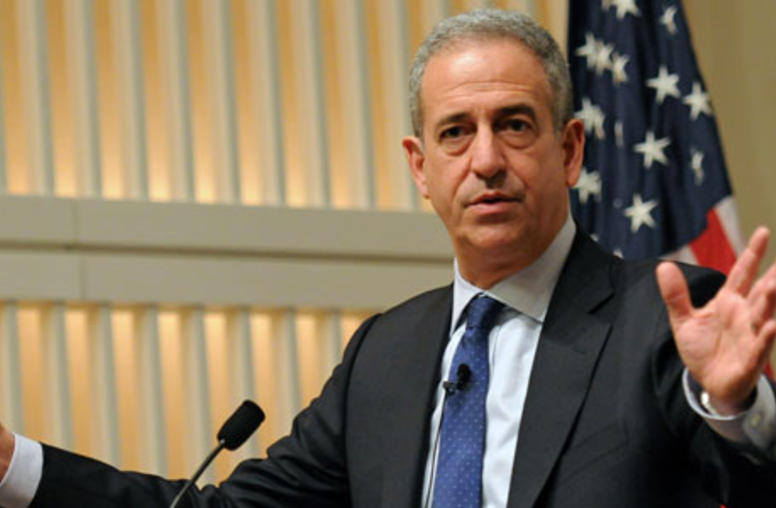BURUNDI ON THE BRINK
Report from the USIP/Great Lakes Policy Forum Discussion
Map of Burundi. Courtesy of
Perry-Castañeda Library Map Collection
The United States Institute of Peace is proud to introduce a new book, Burundi on the Brink: A UN Special Envoy Reflects on Preventive Diplomacy.On May 16, 2000, Ambassador and author Ahmedou Ould-Abdallah spoke about the book and his two years on the ground in Burundi. His comments were followed by discussion of the current peace-making process in Burundi with the Ambassador of Burundi, Thomas Ndikumana, and Special Assistant for the Greater Horn of Africa Initiative, Ambassador Richard Bogosian.
The presentation was followed by questions from the floor.
The Ambassador's Assessment
Ambassador Ould-Abdallah's book raises difficult questions about preventive diplomacy, the role of the United Nations, and the promotion of peace in Africa. In a conflict, many variables are at play and those who intervene on behalf of the international community must be able to address basic issues about the situation on the ground and the anticipated role of international institutions before committing to and implementing a mission.
The points made by Ould-Abdallah in his presentation were drawn from the lessons learned on the ground in Burundi and about which he writes in Burundi on the Brink.Ould-Abdallah identifies three specific problem areas in preventive diplomacy:
1. Shortcomings in the machinery and culture of the United Nations"I am convinced that, as regards the crisis in the Great Lakes region, the embassies of Belgium, France, the United States, and Germany have access to better information and higher-quality analysis than does UN headquarters. This is no doubt true of other trouble spots as well. The United Nations must get into the habit of asking the concerned member-states for all useful information on the countries in which it intervenes, even if it means delaying its own assessment. This is crucial for the effectiveness and credibility of the organization. Consultation among the member-states preoccupied with a particular question should become the rule for a reinvigorated United Nations." (page 116)
The problem of intelligence gathering and analysis in the United Nations is only one of several issues to which Ould-Abdallah refers. It is clear that serious institutional reform within the United Nations is necessary before it will be capable of attaining its potential as a force for peace in African conflicts.
2. Overreliance on military intervention
"For a special representative, the presence of blue helmets in a domestic conflict may well be seen as an additional problem rather than a contribution to stability, especially if the troops have been sent without a precise mandate and a preliminary evaluation of all the risks. The special representative in this situation has to spend more time managing the civilian and military personnel than looking for solutions to the crisis for which he or she has been nominated as mediator in the first place. It may also be noted that in Liberia, Sierra Leone, and Somalia, as with Rwandan troops in the eastern Congo, foreign forces came to be seen as another faction in the conflict." (page 123)
Recent events in Sierra Leone drive home the importance of these observations. After a decade of attempts at post-cold war conflict prevention, there is still no successful formula for intervention in Africa. The international community has yet to fully address the fundamental tensions stemming from the desire for African solutions to African problems, the West's regular reluctance to commit troops to peace enforcement in Africa, and the complex dynamics of political-military relationships resulting from multinational peacekeeping operations.
3. Unintended consequences of humanitarian assistance.
"Humanitarian assistance can not only hamper a speedy return to normal economic activity but also permanently hobble the economies of countries in which shortages of food, social services, and infrastructure are customary. Once the machinery of assistance has been created, neither the local population -- who quickly come to rely on the supplies and services provided -- nor the aid workers themselves -- who understandably come to see themselves as indispensable -- are willing to return to the pre-crisis situation. Furthermore, the growing dependence of the local population on foreign assistance is matched by a growing cynicism regarding the motives for its provision." (page 127)
The clear implication is that the role of non-governmental organizations and other aid-providing institutions in conflict zones must be re-assessed. Their operations must be coordinated with the activities of the peacekeeping force and their country-specific programs must articulate exit strategies in order to avoid the perpetuation of aid reliance.
With these three points Ould-Abdallah has laid the groundwork for serious re-examination of efforts at preventive diplomacy in Africa.
The Burundian Perspective
Ambassador Thomas Ndikumana seconded many of Ould-Abdallah's observations, drawing particular attention to the following points:
- It is imperative that there be enough information about all parties to the conflict to enable appropriate responses to future developments;
- The best means of intervention must be identified and then resources committed to it;
- A chain of accountability for the mission must be established, and must be held responsible whether there is ultimately a success or failure;
- Rules of conduct for UN peacekeepers and other personnel must be carefully articulated and then enforced.
In general, Ndikumana noted that "blue helmets" should not be the first solution to a problem. Nevertheless, the international community should remain engaged in finding solutions to difficult problems.
With respect to the situation today, Ambassador Ndikumana commented that members of the international media act as "prophets of doom" when it comes to reporting on current events. While it is true that many of the local problems noted in Ould-Abdallah's book continue to exist, the Burundian government is trying to attain a new accord. Burundi is seeking a complete end to hostilities, the return of security, a guarantee of implementation of an accord, and the establishment of a mechanism for transition from the current state of affairs to a civilian government.
The American Perspective
Ambassador Richard Bogosian urged everyone to read Ould-Abdallah's book, calling it required reading for the study of preventive diplomacy. Bogosian went on to make three observations about preventive diplomacy:
- Parties to peace negotiations must be open to new approaches and new solutions. There is no universal formula for resolving conflict in Africa. Individual conflicts require individual solutions;
- The international community and negotiating parties must acknowledge failure when it occurs and then make themselves open to new approaches to solving the problem;
- The domestic political environment of donor countries and countries taking part in peace negotiations or intervention must not be ignored. The degree of Western response to a complex emergency on the ground in Africa is very much tied to the political situation at home.
Conclusion
With Burundi on the Brink, Ambassador Ahmedou Ould-Abdallah has written a book which is likely to provoke serious debate about the future of the United Nations, peacekeeping operations, and the role of the international community in addressing complex emergencies in Africa. One hopes that discussion at the Institute of Peace was only the beginning of the debate.
Speaker
- Ambassador Ahmedou Ould-Abdallah
Executive Secretary of the Global Coalition for Africa and
Former UN Special Envoy to Burundi
Respondents
- Ambassador Thomas Ndikumana
Ambassador of the Republic of Burundi to the United States
- Ambassador Richard Bogosian
Special Assistant for the Greater Horn of Africa Initiative at the U.S. Agency for International Development
Co-Chairs
- Dr. Barnett Rubin
Director of the Center for Preventive Diplomacy at the Council on Foreign Relations
- Dr. David Smock
Director of the Grant Program of the United States Institute of Peace
This event was co-sponsored by the U.S. Institute of Peace and the Great Lakes Policy Forum. This report was written by Emily Metzgar, a program officer at the Institute.




